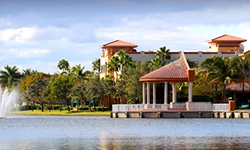Florida’s Unique Procedure For “Probating” Homestead Property
By: Jacqueline R. Bowden Gold
It is no surprise that Florida is different from the other 49 states. What is confusing to some probate attorneys outside the state is Florida’s unique Procedure for “Probating” Homestead Property. Pursuant to Florida Statute 733.607, protected Florida homestead property is not considered a probate asset, so why does it usually require a probate proceeding?
First, we must define what is homestead. Homestead is real property, of no more than 160 contiguous acres outside a municipality, or no more than one-half of an acre of contiguous land in a municipality, owned by a natural person, and the improvements on it. Art. X, §4(a), Fla. Const. In addition, to qualify for homestead it must be the decedent’s primary or permanent residence prior to death and the property must be owned by a natural person.
Note: Non-resident aliens cannot claim homestead status as they cannot legally form the intention to make the real property his or her permanent residence.

In order for your heirs to prove these criteria have been met a Determination of Homestead proceeding is required to be brought in Circuit Court and most commonly in the probate division. Here are three important reasons why you may want to have Florida Homestead validated:
- Protection from Creditors:
Upon the decedent’s passing, homestead is exempt from creditor claims and this protection passes to the decedent’s heirs at law. This means the decedent’s creditors cannot force the sale of the protected Florida homestead or collect any outstanding debts against the homestead. However, in order for this protection to occur the court must enter a Determination of Homestead ensuring the validity and existence that all qualifying criteria have been met. If the property is devised to persons who are not heirs of the decedent the nonexempt or “unprotected” homestead may be used to fulfill any outstanding debts of the decedent.
There are a few exceptions when a creditor can defeat the Florida homestead protection: 1) taxes and assessments specified under Article X, §4(a) of the Florida Constitution; 2) encumbrances voluntarily entered, such as mortgages; 3) liens that attach before the creation of homestead, for example association fees; and 4) liens for work performed on the property.
- Protect Interest of Spouse or Minor Child:
Another reason to have the property determined homestead is to protect the interest of a spouse or minor child. Florida homestead property is not devisable when the decedent is survived by a spouse or minor child. However, property that is not homestead is devisable, therefore in order to protect the rights of a spouse or minor child the interested party needs to have the property determined Florida homestead. For more information on devising the decedent’s homestead when survived by a spouse or minor child read our article Florida Homestead: Three Tricky Issues To Watch.
- Clear Title:
Often a Determination of Homestead is required to clear title to the property. If the heirs decide to sell the homestead property we find that title underwriters will not issue title insurance without a Determination of Homestead. Of course, this varies depending on the specific title underwriter but it is becoming common practice. The reason is to have a clear chain of title and a document validating who are the rightful owners.
Summary
Although Florida homestead is not considered a probate asset, it is usually advisable to file a Petition To Determine Homestead in the probate proceeding for three critical reasons: (1) Ensure that the property is protected from creditor claims; (2) Protect the interest of a spouse or minor child; and (3) ensure clear title.
For more information, contact Jacqueline Bowden Gold, Miami Probate attorney experienced in Florida Homestead Property, at (305) 556-5209 or JBowden@raricklaw.com. Special Note
The information on this blog is of a general nature and is not intended to answer any individual’s legal questions. Do not rely on information presented herein to address your individual legal concerns. If you have a legal question about your Florida Homestead Property, you should consult an experienced Miami Probate attorney. Your receipt of information from this website or blog does not create an attorney-client relationship and the legal privileges inherent therein.











